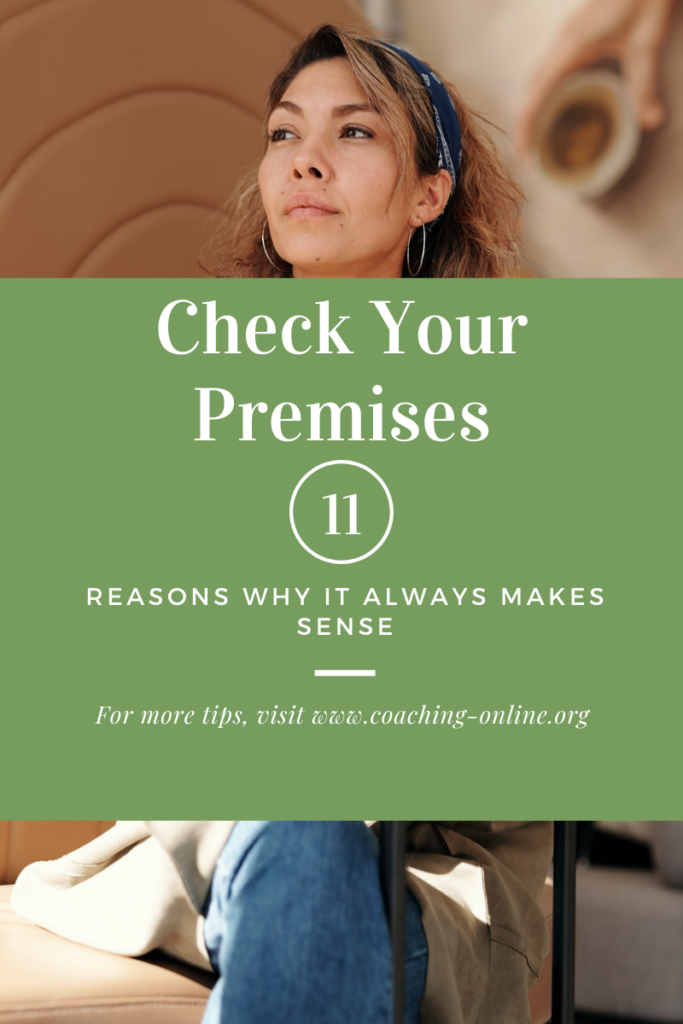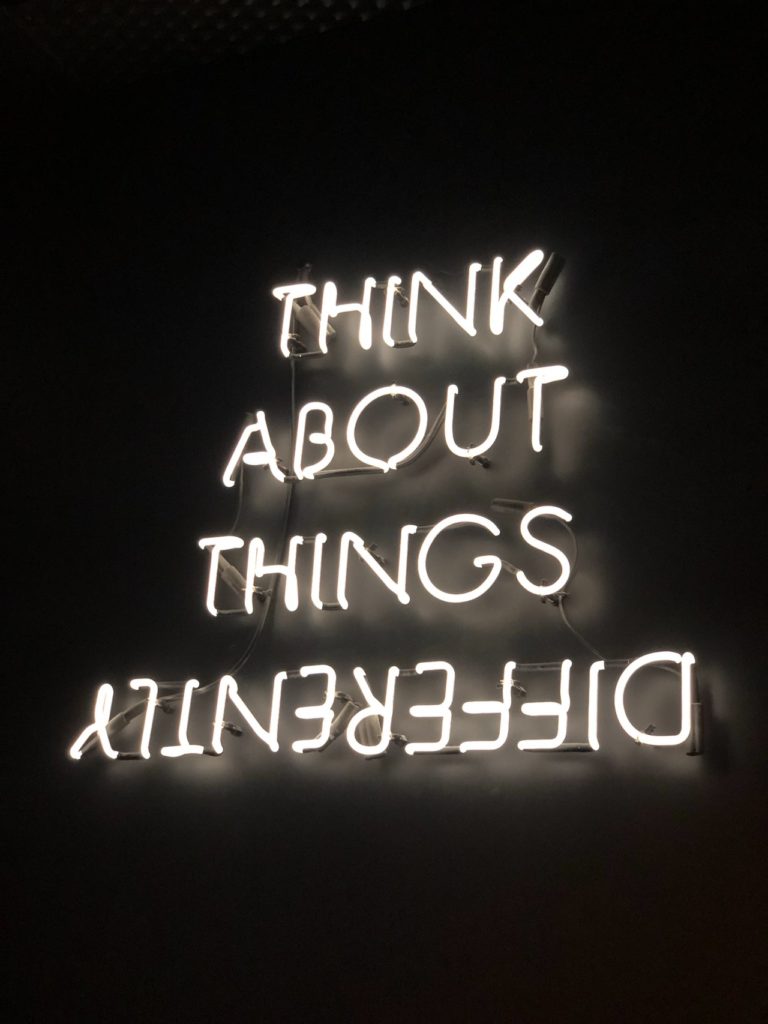One of the easiest routes to being unsuccessful is by always being sure of yourself and your beliefs.
If you’re never open to questioning your beliefs, you’re more likely to make mistakes that may sabotage your path to success.
This is why it’s essential to check your premises.
By consistently checking the propositions that form the basis of your arguments and decisions, you’re more likely to achieve success.
In today’s post, we discuss 11 reasons why it always makes sense to check your premises. Here’s what you’ll learn:
But before we get into anything, let’s first understand what check your premises means.
What Does Check your Premises Mean?
Check your premises is a phrase that first appeared in Ayn Rand 1957 novel, Atlas Shrugged. According to Rand, “Contradictions do not exist. Whenever you think that you are facing a contradiction, check your premises. You will find that one of them is wrong.”
This statement urges us to be open-minded and to question the basis of our beliefs and ideas constantly.
By consistently checking your premises, you set yourself up for success in all areas of life.
However, when we say check your premises, we don’t mean constantly second-guessing yourself. Here’s how to know if your premises need checking.
How Do You Know Your Premises Need Checking?
There are multiple ways to know if you have incorrect premises.
Here are a few of them:
When You Notice that Your Assumptions Are Flawed
One of the first signs that your premises need checking is when you notice that your assumptions about certain things are wrong.
Let’s take the example of an entrepreneur. Before starting a business, the entrepreneur has assumed that certain products and services would result in higher sales. However, in the first month of operation, the entrepreneur realizes that the products he expected to be in high demand aren’t selling as much.
In such a situation, the entrepreneur needs to check his premises.
When You Keep Making the Same Mistake Again
The second sign that your premises need checking is when you keep making the same mistake and not learning from it.
Let’s take the example of a man who keeps repeating the same mistakes with the women he dates. Maybe he’s too needy or too insecure. Such a man may need to review his premises on how to handle a relationship.
If not, he’ll live a life of failure.
Like Albert Einstein once said, “Insanity is doing the same thing over and over and expecting different results.”
When you repeatedly do the same thing and keep failing, it may be time to check your premises.
When Your Words Don’t Match Your Actions
Are you the kind of person who’s in love with the idea of being wealthy but never takes action to actualize your goals?
This could be a sign that your premises on what it takes to achieve success needs checking.
This third sign could also apply in relationships where one partner criticizes something they dislike about their partner, only repeating it later.
Such a situation may mean that one partner has contradictory premises and need to adjust them.

Why it Makes Sense to Check Your Premises
#1. Helps avoid mistakes
It’s always best to check your premises before making any significant decisions. Check your premises often enough to avoid making mistakes
When forming your premises, high chances are they were right. However, with time, things could have changed.
Relying on these premises will likely result in faulty reasoning, resulting in flawed conclusions and decisions, making it impossible to achieve your goals.
#2. Helps boost your confidence
Checking your premises helps boost your confidence.
When you consistently check your premises, you’re more likely to be sure of your decisions. You’re less likely to doubt or second guess yourself since you’ve already dispelled any contradictions that may arise against your thinking.
With increased confidence, you’re less likely to waste your time and energy when making any crucial decisions.
#3. Helps avoid feeling regretful
When you fail to check your premises, you’ll likely make the wrong decisions, resulting in regrets.
You could have saved yourself from a lot of trouble by simply asking if your premises are still applicable.
Check them before proceeding with any significant decision so that you won’t have any regrets later. Check them often so that if your premises are no longer valid, you can still act to correct the situation before it’s too late.
#4. Helps you get the complete picture during arguments
A lot of arguments happen due to contradictions between people’s opinions and views.
They usually assume things based only on what they believe to be true and don’t bother cross-checking whether these premises are still applicable. By doing so, they’re contributing more towards making the conversation one-sided, leading to more misunderstandings and disagreements.
Checking your premises helps to make sure you’re not missing out on any facts or details. It also allows you to view the argument from a different perspective, which will likely result in better persuasion and understanding.
#5. Allows continuous learning
One of the ways to ensure continuous learning is by being willing to unlearn things that no longer serve your best interest.
When you check your premises, it becomes easier to identify the thing we need to unlearn. By letting go of flawed conclusions, you create room to learn new things and come up with new findings.
#6. Helps you to be more convincing
When you have enough confidence that your opinions are supported by evidence, it’s easier to convince people who see things differently.
Check your premises whenever there is a need for persuasion so that you can speak with conviction. Doing this makes sure that you’re speaking from a position of strength instead of being defensive.
#7. Helps to prevent people from judging you negatively
Checking your premises helps prevent other people from judging you negatively.
When you’re constantly checking your premises, you’d be able to determine when it’s best to share some ideas and opinions with others. You can also gauge the reaction of people around you so that you can adjust accordingly.
You’ll also be more likely to take time to validate your conclusions before speaking about them with others.
#8. Helps to keep you from getting duped.
If you’re constantly checking your premises, then it becomes easier for you to determine if someone is trying to persuade you for ulterior motives.
It would become much harder to dupe someone who takes the time to validate their conclusions and ideas before sharing them with others.
Check your premises every now and then to easily determine if someone is trying to take advantage of you.
#9. Helps you face the truth
Checking your premises helps you face the truth instead of living in denial.
You’ll be forced to admit when some ideas and opinions are no longer valid, especially if it’s against what you have come to believe and accept as a fact. Check your premises regularly so that you can become more open-minded about new ideas and concepts.
#10. Helps you be more understanding and tolerant towards others
Checking your premises helps keep your mind free from biases and stereotypes against other people or groups of people.
When you’re aware that you may not be seeing everything objectively, you’re likely to be more understanding and tolerant of other people and their ideas.
If you’re constantly checking on the proposition that forms the basis of your argument, it makes it harder for you to pass judgment over someone else based on preconceived notions and biases.
#11. Helps you improve critical thinking skills
When you check your premises, it helps improve your critical thinking skills.
Critical thinking is a skill that most people need to improve upon but don’t know where to start from.
Questioning the proposition that forms the basis of your arguments helps you to develop critical thinking skills. When you regularly examine your premises, it becomes easier to identify fallacies in arguments.
Checking your premises helps you understand how human error and biases can interfere with how we think.
Check your premises regularly so that you’ll always be able to look at things from different perspectives, which is essential for critical thinking.
You may be wondering, “with all these reasons why it makes sense to check your premises, how comes most people don’t talk about this topic, let alone check their premises?”
We answer this in the next section.

Why is it Difficult to Check your Premises?
One of the main reasons checking your premises is usually tricky is because it was probably true when coming up with the premise.
“If it was true then, there’s no reason why it should be false now.” this is the thought most people have.
However, certain variables could have changed, making your premises wrong.
Another reason why it’s hard to check and change your premises is the fact that a change in what you’ve previously considered as true or good could make previous decisions irrelevant and wrong.
Few people are willing to admit they have been wrong, which is why it’s challenging to check your premises.
Any Further Questions?
There you go.
Eleven reasons why it always makes sense to check your premises.
Will you rely on past premises, or will you take up the challenge to consistently question the proposition that forms the basis of your arguments and decisions?
Do you know of any other reasons why it makes sense to check your premises? Please share in the comment section below.
And if you have any questions on why it’s essential to evaluate your premises, feel free to ask it in the comment section.
I’ll do my best to respond to any question asked.
Related Content
Integrated Leadership: 7 Ideas To Be A Better Leader
